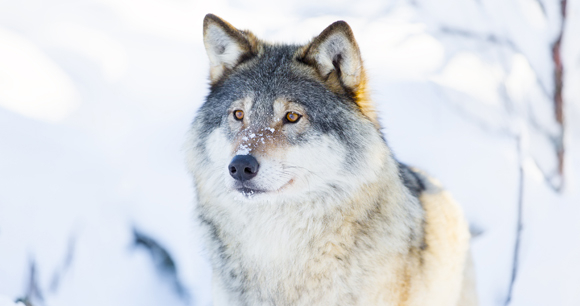
Billings, MT—The Global Indigenous Council today released “FAMILY,” a short film highlighting the deep cultural connection Indigenous nations share with wolves and the major threats currently facing imperiled wolves in the lower 48 states. The film is available to view for free on YouTube.
“FAMILY,” which received funding from the Animal Welfare Institute (AWI), appeals to Interior Secretary Deb Haaland to reverse former President Donald Trump’s decision to remove federal protection from gray wolves in the lower 48 states and to relist the wolf under the Endangered Species Act. Leaving the Trump administration’s wolf delisting rule in place contradicts President Joe Biden’s Jan. 26 “Memorandum on Tribal Consultation and Strengthening Nation-to-Nation Relationships,” as the vast array of tribes impacted by the former administration’s decision were never consulted.
In a recent interview on the Brave Wilderness YouTube channel, Biden said, “I’m in,” when asked about protections for wolves. The president also articulated the message conveyed by “FAMILY.”
More than 120 tribes and numerous highly respected Indigenous spiritual leaders, authors, orators, and water protectors have signed “The Wolf: A Treaty of Cultural and Environmental Survival.” Contrary to the law on federally mandated tribal consultation, the Trump administration declined to meet with tribal government signatories or even accept receipt of the treaty. Echoing “FAMILY,” tribal leaders are calling on Secretary Haaland to meet with a tribal delegation regarding the treaty and to reinstate protections for wolves.
This year, several states have passed legislation or implemented management decisions that could push the species back to the brink of extinction. In Wisconsin, a February hunt resulted in the death of 216 wolves in just 60 hours, far exceeding the state’s allowed quota. In Montana and Idaho, governors recently signed a slew of bills aimed at reducing wolf populations by 80% and 90%, respectively. The laws enshrine unethical practices, including lethal neck snaring, use of motorized vehicles to chase and kill wolves, baiting, spotlighting at night, and an extension of the hunting and trapping seasons.
“These wolf extermination bills passed and signed by right-wing extremists at the state level demonstrate that they are not only hunting democracy to extinction, they are also conflating Euro-medieval sadism with so-called wildlife management to the same ends with wolves,” said Rain, the director of “FAMILY” and producer of “Say Her Name” and “Somebody’s Daughter.”
“FAMILY” aims to heighten awareness of the threats wolves are facing nationwide, while stressing that preservation and management of the species is a social justice issue for tribal nations.
“Who can’t see this decimation of the wolf as part of the continuing war on Indigenous cultures? What is happening to the wolf is a social justice issue for Indigenous people. The wolf has a vital role in so many of our cultures—in our clans, our songs, our ceremonies. Yet our voices are ignored,” said Crystle Lightning, an award-winning actress who is the narrator of “FAMILY.” “Whenever the voices of any people are silenced, it is suppression. We are the First People of this land, but always the last to be heard.”
Partner organizations who supported the project and are appealing to Haaland to meet with a tribal delegation regarding the Wolf Treaty and to restore protections include: AWI, the Sierra Club, the Center for Biological Diversity, the Humane Society of the United States, WildEarth Guardians, Western Watersheds Project, and the Endangered Species Coalition.
In a letter to Haaland last week, Rep. Peter DeFazio (D-OR) urged the secretary to return ESA protections to wolves “before the wolf population is decimated, undoing the decades of work toward wolf recovery.”
- Marjorie Fishman, Animal Welfare Institute
(202) 446-2128, [email protected] - Courtney Bourgoin, Sierra Club
(248) 214-6682, [email protected]
The Animal Welfare Institute (awionline.org) is a nonprofit charitable organization founded in 1951 and dedicated to reducing animal suffering caused by people. AWI engages policymakers, scientists, industry, and the public to achieve better treatment of animals everywhere—in the laboratory, on the farm, in commerce, at home, and in the wild. Follow us on Facebook, Twitter, and Instagram for updates and other important animal protection news.